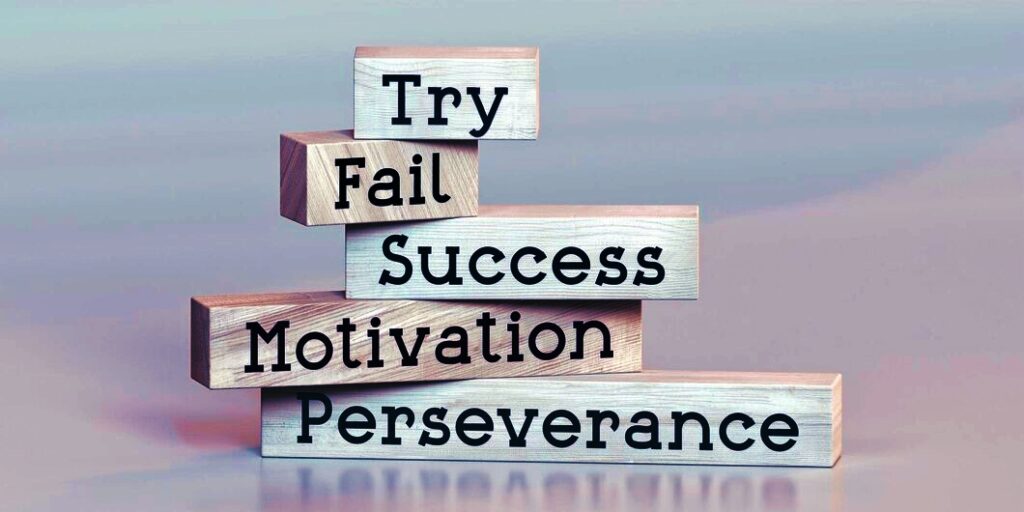Ask any successful person about their failure into success journey, and you will know that they too had their share of failures. Failure is a part of life, and especially an inevitable aspect of a business. But failure is not permanent unless you give it the POWER it seeks.
A successful person is not someone who has never tasted failure. A successful person learns from his failure and turns it into success.
How much you learn from your failure determines how far you will go in creating success. And if we seek to grow both personally and professionally, we must pursue desired ends. We have to step out of our comfort zones and challenge ourselves with the goals we set. However, turning your failure into success is the real process.
Here are 5 simple, yet surprisingly powerful ways to turn every failure into success:
1. Set Realistic Goals
First, sit down and visualize yourself. What exactly do you want to be? Do you want to be an Entrepreneur? Or, do you simply want to get a job in the field you love? Which career path or personal goals do you have?

Many aspiring people set too many goals even before they begin, and set their foot on the path of disappointment and failure. Don`t do that! It will only give you a series of setbacks.
The key to setting realistic goals is that you meet them, where you are currently in your personal and professional life.
2. Prepare to fail & Learn from your Mistakes
To err is human, and to learn from those errors is becoming a ‘Super Human’. And, no we are not kidding at all! Every human being makes mistakes on an unknown journey. Identifying your mistakes and learning from them quickly is what determines your personal and professional growth.

Many successful people have experienced some kind of failure. Most of the great inventions like the X-Ray machine, Microwave Oven, Penicillin, and super yummy chocolate chip cookies happened entirely due to mistakes.
But not every mistake will be as sweet as choco-chip cookies. This is why understanding your mistakes and learning your lesson increases your growth potential.
3. Celebrate not just your success, but also your Failures
We all know that smooth roads have never made good drivers. And failures are those pin-head turns that send chills down the spine of every driver. But fearing those turns will never help you to succeed. Why? Inaction puts everything at risk.
It is far better to perform a task imperfectly than to do nothing at all. When we do nothing and let the fear of failure overpower us, we do not make any progress- professionally as well as personally. And that is the shortest route to FAILURE.
Hence, keep taking calculated risks. If you fail, shrug off the clouds of dust, get over it, and try again! That will take you on the road to guaranteed success. Meet motivational speakers in India like Dr. Vivek Bindra to understand the mantra of success.
4. List out the reasons you failed

Just like the doctor can’t diagnose the disease without conducting a few tests, we too can’t learn from our mistakes, unless we know the reasons. Sometimes, the reasons could be so small that you might not even have noticed them.
But when we analyze our mistakes and the factors that contributed to them, we understand the reasons behind the failure in a clearer way.
Also, some of the best lessons we ever learn are learned from the mistakes we have done in the past!
5. Talk to yourself nicely, because you are listening
According to Forbes, people who tend to fall short of their goals, turn on themselves. They straightway direct the frustration over their failure towards a self-destructive negative mindset.
It is one of the most common patterns that people follow. They engage in negative self-talk. However, it is the single most destructive pattern that results in berating themselves. Negative self-talk can be incredibly damaging, especially when you have encountered a bump of failure.

Do not let failure allow you to get indulged in self-pity. A failure might sting for a moment, but it too will pass. Staying positive during averse times is the real key to the door to success.
If you are in a season of failure and setbacks, you must know that you are not alone. Also, your current situation will not remain the same forever. Know that with the right mentorship , you can turn things around with you.
Some Questions About Convert Failure Into Success
- What does it mean to convert failure into success?
Converting failure into success means learning from setbacks, challenges, or unsuccessful endeavors and using those experiences to achieve positive outcomes or accomplishments in the future.

- Why is it important to convert failure into success?
Converting failure into success is essential for personal and professional growth. It helps individuals develop resilience, learn valuable lessons, and become more adept at overcoming obstacles.
- What are some common ways to convert failure into success?
There are various approaches, including learning from mistakes, seeking feedback, adjusting strategies, staying persistent, and maintaining a positive mindset.
- How can I learn from failure?
Learning from failure involves reflecting on what went wrong, identifying areas for improvement, and using that insight to make better decisions or take different actions in the future.
- Is it possible to turn any failure into success?
While not every failure can be immediately transformed into success, there is often an opportunity for growth or a silver lining in challenging situations. It’s about finding lessons or opportunities for improvement in every setback.

- How can persistence help in converting failure into success?
Persistence is crucial because it keeps you focused on your goals despite obstacles or setbacks. By persisting through challenges, you increase your chances of eventually achieving success.
- What role does mindset play in converting failure into success?
A positive mindset can help individuals see failures as opportunities for growth rather than insurmountable obstacles. It allows them to bounce back from setbacks more resiliently and approach future endeavors with confidence.
- Can converting failure into success benefit businesses or organizations?
Absolutely. Businesses and organizations that embrace a culture of learning from failure can become more innovative, adaptable, and successful in the long run. They’re better equipped to navigate uncertainty and respond effectively to challenges.
- How can I apply the principles of converting failure into success in my daily life?
You can start by reframing how you view failure, embracing it as a natural part of the learning process. Setbacks become opportunities for growth and improvement. Additionally, practice resilience, persistence, and a growth mindset in tackling challenges.
- Are there any real-life examples of people who have successfully converted failure into success?
Yes, many successful individuals and companies have faced significant setbacks but ultimately triumphed by learning from their failures. Examples include Thomas Edison, whose numerous attempts led to the invention of the light bulb, and companies like Apple and SpaceX, which experienced setbacks but persevered to achieve remarkable success.



